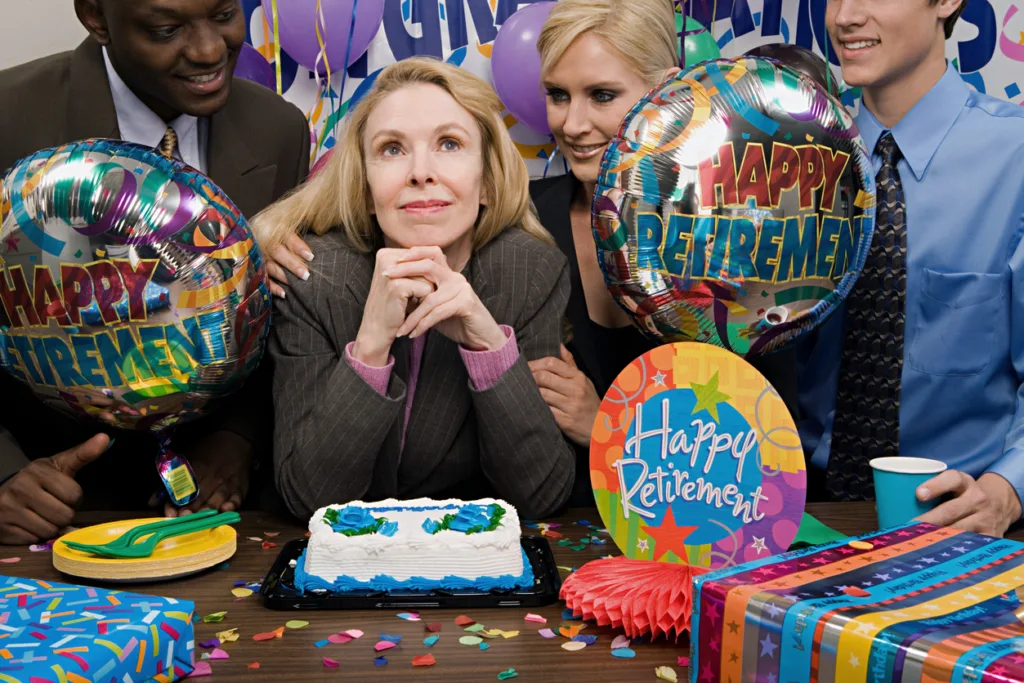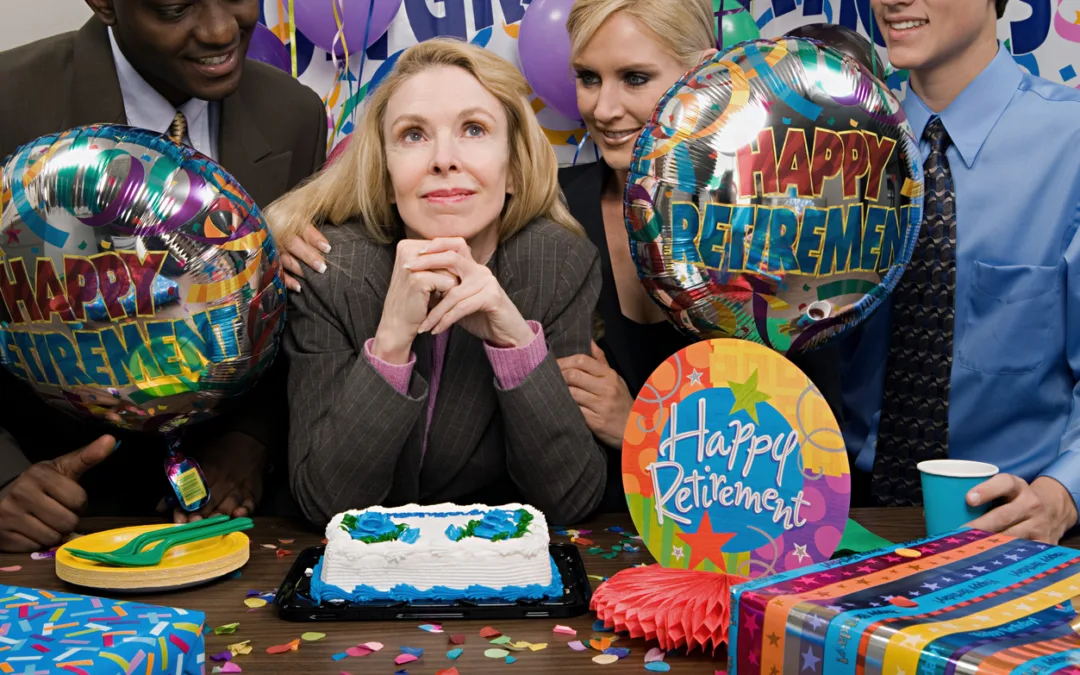
Timing retirement:
How to hit the sweet spot
Is 2023 the year you will finally step back from full-time work?
If so, which factors will persuade you?
A veritable industry has sprung up offering advice on how best to time your retirement. But when it all boils down, most people base their decisions on one of five key factors; age, money, work, health or OPNs (other peoples’ needs). There’s a lot to consider across this range of issues – and it is often a mix of these factors that guides decision-making.
How to ensure that you get it right?
To be realistic, there are no guarantees that you will. It’s often your chronological age or external events that will trigger your decision to leave full-time work. According to the Australian Bureau of Statistics, these are the major factors involved:
- reaching the retirement age or eligibility for superannuation or pension (46%)
- having a sickness, injury or disability (21%)
- being retrenched or dismissed or there was no work available (11%)
But in thinking through all the main factors, you will be able to maintain as much control as possible over the timing.
Let’s look at each of these main reasons for retirement, one by one, and the key things you need to know to make sure your planning is as watertight as possible.
1. Age
As we’ve shared previously, Australia does not have an official retirement age, so there is no ‘golden date’ coming up on your calendar. It’s up to you to make this call. If you are confident of receiving an Age Pension and wish to work until you are eligible, then currently you need to be 66.5, or 67 from July 1, 2023. It’s worth remembering that you may apply up to 13 weeks prior to ensure you are paid from day one of your eligibility, rather than waiting for Centrelink to process your application.
You may wish to retire earlier, and many people choose to do so when they reach Preservation Age] – the age at which you can access your superannuation without penalty. Should you do so, you will be responsible for funding your own retirement – or at least until you reach Age Pension age, assuming you are eligible for a full or part Age Pension at some stage.
Some people are also affected by the type of industry in which they work – for instance judges and airline pilots face mandatory retirement ages, whilst cultural norms make working longer in some other workplaces similarly difficult.
2. Money
Age Pension eligibility is just one piece of the puzzle in timing retirement. The target nest egg quoted for a comfortable retirement by Association of Super Funds Australia (ASFA) suggests savings of $640,000 for couples, $545,000 for singles are necessary. This could offer a goal for many pre-retirees and when they have reached it, they may feel comfortable to step back from the workplace.
The vast majority of people, however, will not save anything like this amount and as a result, often worry about how long their savings might last. The answer could be, as long as that proverbial piece of string, as there are a lot of variables involved. The good news is that our Retirement Forecaster tool is able to combine your savings, likely longevity and likelihood of any pension benefits with your expected cost of living in retirement and deliver scenarios that will help with your decision making. The key takeout here is that the so-called required nest egg is not a realistic target for most people. What is important to understand is that a mix of modest super savings and Age Pension entitlements enables the majority of Australians to lead a decent existence. A dose of realism about how long your nest egg might last is critical to accurate financial forecasting.
3. Work
As noted by the ABS, 11% of retirees left work due to retrenchment, dismissal or because there was no further work available. This is clearly not a discretionary choice. Those who are below Age Pension age and lacking substantial savings will need to explore avenues of government assistance, including JobSeeker payments. Those who are old enough to be eligible for an Age Pension will also benefit from the more flexible Work Bonus measures delivered late last year, and able to be accessed until 31 December, 2023.
4. Health
More than 20% of Australians leave work because of illness or disability. This percentage used to be higher, so it may be that workplaces have become more accommodating for those with health challenges – or that working from home is a positive development for this sector of the community. Leaving work early due to health issues is very stressful and if you are below Age Pension age, it means living on private savings (if you have them), a disability pension (if you qualify) or Jobseeker, which at $719 per fortnight (if you are aged over 60) is considered by most Australian as inadequate for recipients.
5. Other People’s Needs
With the exception of retiring to spend time with a partner who is keen to leave work, other peoples’ needs can be the wildcards in our retirement decision-making. Such needs might include providing health care for someone else (this is the main reason for retirement for 8% of women), becoming a regular carer for grandchildren, or relocation which means your regular work is no longer possible. It’s entirely personal whether we put other peoples’ needs above our own. Generally speaking, it often occurs from an unexpected situation, therefore it’s not something we can easily plan for.
The obvious conclusion is that trying to time your retirement is a challenging task.
We can often be a victim of circumstances, but we also may be able to influence the outcomes.
Here are some of the ways we can ensure our transition to retirement is (mainly) under our own control:
Financial:
- saving more at a younger age and, using the power of compounding,
- knowing rules and strategies,
- salary sacrificing or more discretionary contributions
- using superannuation rules e.g. bring forward rules (we will write more about this in the next couple of weeks) to greatest benefit
Health:
- taking preventative measures including regular check-ups, good nutrition, regular exercise, etc.
- having tests as needed
- being aware of genetic risks to your health and monitoring them
Work:
- keeping your skills up to date,
- considering retraining when and as necessary
- staying connected within your industry
And age?
You can’t change your age can you?
No, but you can recognise that in most cases age is just a number and if you feel fit and healthy and wish to work past your 70s or 80s then there is no reason why you shouldn’t. Never retire because you think you’re past it.
And don’t be afraid to re-enter the workforce if life without work isn’t fulfilling enough for you.
Need a sounding board?
If you are struggling with the optimum timing of your departure from the workplace, don’t worry, you’re far from alone. Sometimes it helps to share your thoughts with someone who knows the rules and is qualified to help you understand the financial implications. A consultation with an adviser can often assist with peace of mind with this important decision.
What about you? Which factors mattered most when you were deciding to retire? Do you have any thoughts that might help others?






is a time persific as far as tax perpurses are concerned for age retirement.
Your right, there is no right time in retirement…It’s up to each individual.. I am 83 and still working….It keeps me focused, helps my health, and helps pay the bills.. Being an older person, Super was not available for a lot of my working life, so we had to improvise to continue our lifestyle
it’s a nuisance to open your emails all it talks is about pensioner and your business to to help them through advisers and consultants
and NOT about HOW yourself and your associate and spokersman/women’s and the right people you could approch including Feds an State Treasurer’s addressing the govt. to install a universal pensions right for everyone in Australia and keep knocking at these people and forcing them to change the present assessment test in place that discriminates some people and not affect politicians and burocrats and their associates THATS WHAT YOUR RETIREMENT ESSENTIALS SHOULD BE ABOUT AND NOTHING ELSE.
You are asking for name and email now that you got it please answer and address me personally on my comments.
Hi Terruso, thank you for your feedback! One of our directors, Jeremy Duffield, has responded to you directly via email.
You make it all sound so scary. It should not be like that. Not every one has savings of half a million. Some of us do not want to work until the day we dye. We should be looking forward to retire finally time to enjoy life and pursue interests left on that “one day” shelf.
Politicians make these rules, yet the rules don’t seem to apply to them.
Had enough and completely burnt out. Time to retire. Will be out by time I am 69